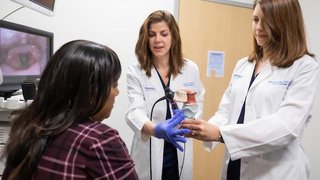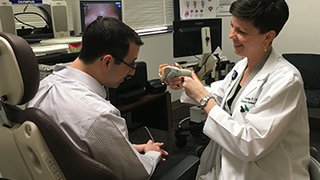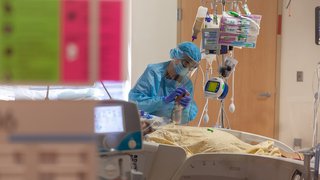Why Choose UT Southwestern for Voice Care?
Many people don’t realize that unexplained voice changes can be corrected or significantly improved, often with therapy alone or, in some cases, with minimally invasive procedures. At the Voice Center, we treat professionals who rely on their voices – singers, actors, public speakers, broadcasters, lawyers, clergy, and teachers – and seniors or anyone experiencing vocal problems.
We help patients who develop voice problems due to neurological disease, trauma, and other conditions – even unknown reasons. The speech-language pathologists at the Voice Center work with patients one-on-one to teach them techniques and strategies to optimize voice production.
Patients should schedule an evaluation with our team if they notice any voice, swallowing, or airway changes, such as:
- Age-related changes to their sound
- Breathing difficulties
- Decreased loudness
- Difficulty swallowing
- Hoarseness
- Loss of pitch range
- Pain or discomfort in the throat
- Pain or fatigue when speaking or singing
- Problems with the singing voice
- Voice breaks
- Vocal tremor
- Whispery or breathy voice
















